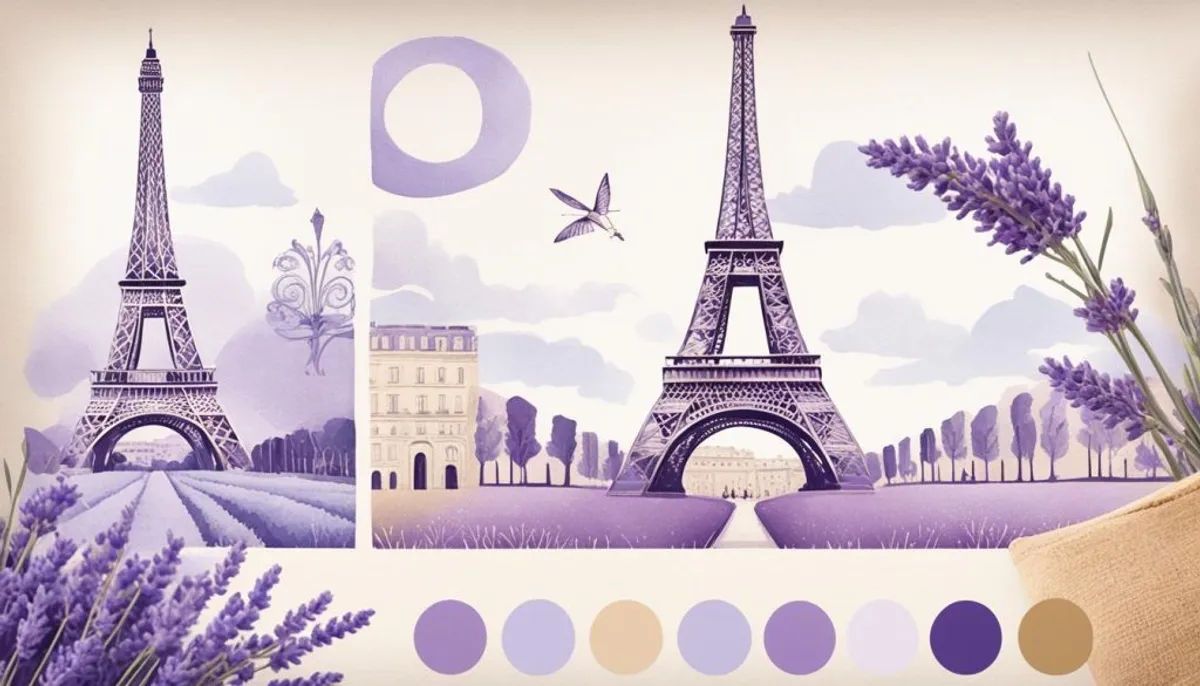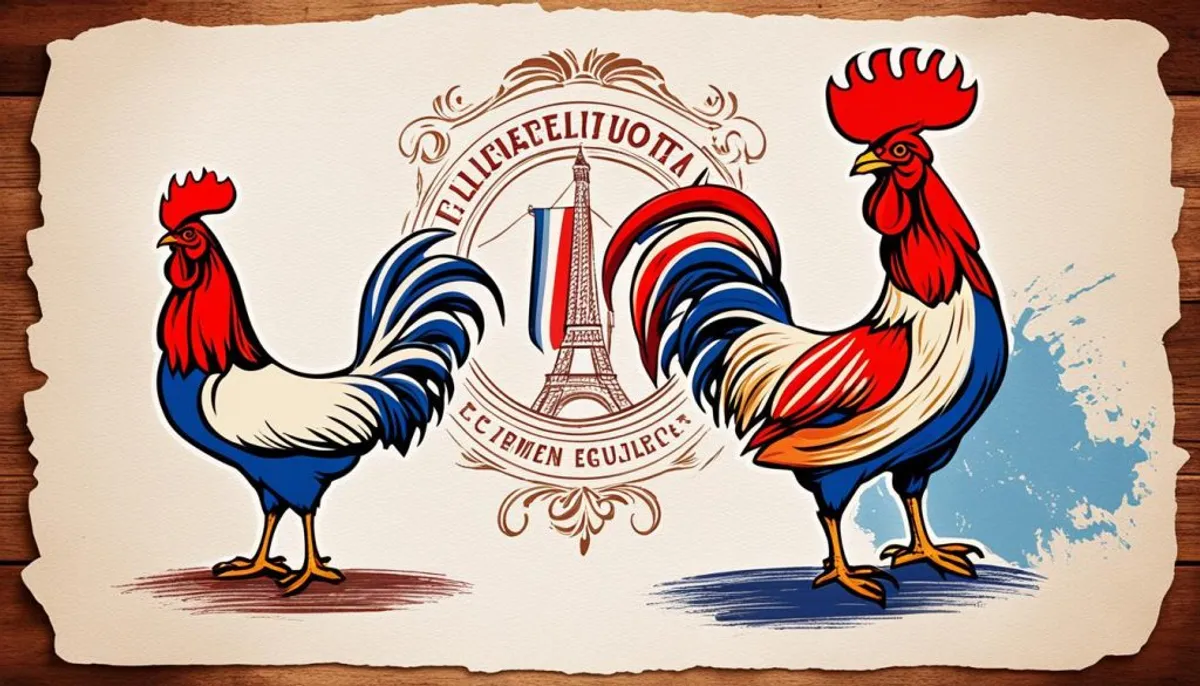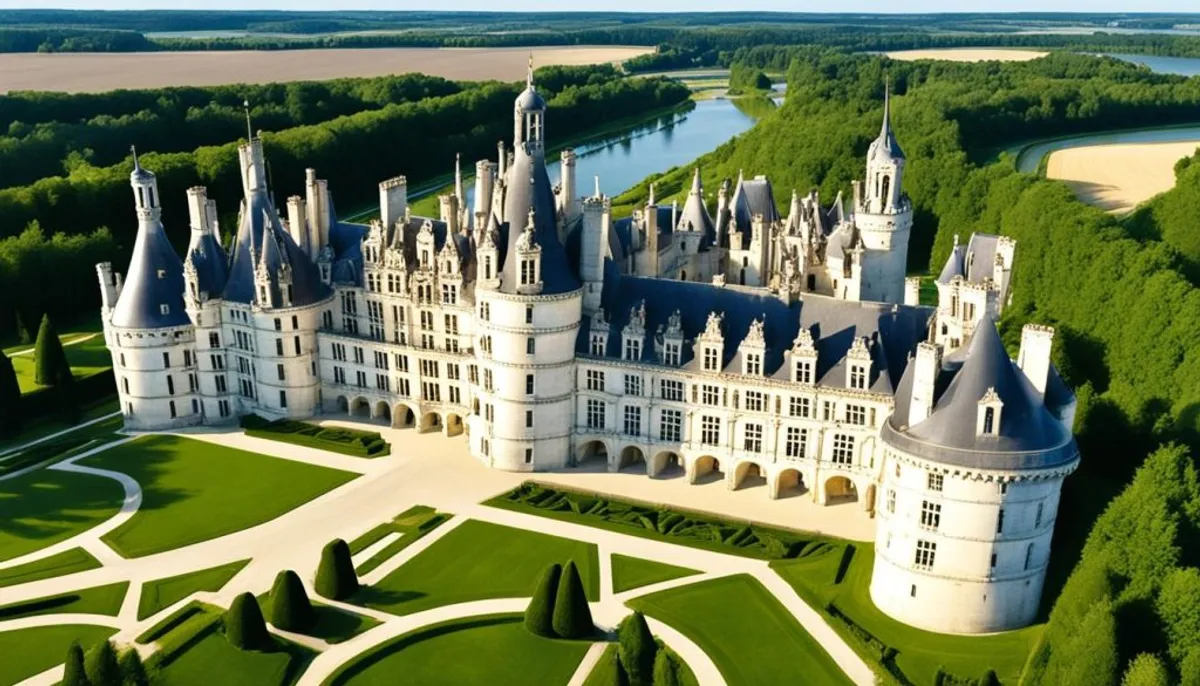The French culture is rich and varied. It is marked by its regions and international influences. It stands out for its unique art of living.
It preserves traditional values such as gastronomy, haute couture, and luxury. The French culture is also linked to romantic painting, philosophy, and literature.
These elements have influenced many global currents of thought. France has a unique public cultural policy. A ministry is specifically tasked with overseeing it.

Introduction to French Culture
The French culture is a mirror of the rich and varied identity of France. It is shaped by history, geography, and the influences that have marked the country. It is known for its unique art of living, its traditions, its living language, and an exceptional cultural heritage.
The French culture is rich and diverse. It has evolved through the regions of France and foreign influences. It is globally recognized in fields such as literature, philosophy, and the arts.
France has been an important cultural center for centuries. Its ideas have influenced the entire world. The French culture is promoted by the media, ensuring its radiance and the preservation of its cultural identity.
What is French Culture?
French culture is rich and unique. It is based on key values that form its national identity. These values, born from the French Revolution, are encapsulated in the motto “Liberty, Equality, Fraternity”. They profoundly influence French society, impacting many areas.
Fundamental Values
Freedom of expression, equality of citizens, and solidarity are essential in France. They form the foundations of citizenship and living together. These French values of liberty, equality, and fraternity are at the heart of the French national identity.
- Freedom touches all aspects of social and political life.
- Equality is ensured by universal suffrage and equal opportunities.
- Fraternity means solidarity and respect for diversity.
France is known for its racial and cultural tolerance. It is an advocate for human rights on the international stage.

| Value | Description |
|---|---|
| Freedom | Freedom of expression, thought, and action is a fundamental right for French citizens. |
| Equality | All citizens are equal in rights and duties, without distinction of origin, race, or religion. |
| Fraternity | Solidarity and mutual respect are essential values of French culture. |
French Language: A Living Heritage
The French language is very important to French culture. It is the official language and a world-renowned diplomatic language. It comes from Latin, Greek, and vernacular languages. It has evolved over the centuries.
French, Official and Diplomatic Language
The French is the official language of law and administration in France since 1539. In the 18th century, France made the French language official in European courts. Today, French is an official and working language of many international organizations.
Regional Languages: A Recognized Heritage
The regional languages of France, such as Basque, Breton, or Occitan, are important. They are seen as a heritage to be preserved. The constitutional revision of 2008 reinforced their heritage value.
The European Bureau for Lesser Used Languages has identified ten regional linguistic communities in France.
France has not signed the European Charter for Regional or Minority Languages. However, a 1999 report listed 75 languages that could be applied. The linguistic diversity of France showcases the richness of its regional culture.
State Cultural Policy
France has a unique French cultural policy. It is led by the Ministry of Culture and many institutions. This tradition dates back to the Ancien Régime and the French Revolution. The Ministry of Cultural Affairs was created in 1959, thanks to André Malraux.
This policy aims to protect and promote French culture. It covers heritage and contemporary arts. It is crucial for safeguarding cultural heritage and encouraging artistic creation.
The objectives of this cultural policy are numerous:
- Preservation and enhancement of French historical and architectural heritage
- Support for contemporary creation in the arts, literature, music, and cinema
- Facilitate access to culture with libraries, museums, and performance venues everywhere
- Disseminate the French language and culture internationally
France has succeeded in protecting its rich cultural heritage. It also encourages contemporary artistic creation. This strengthens its identity and global influence.
Iconic Cultural Traditions
Gastronomy and Art of Living
French gastronomy is famous worldwide. It is known for its craftsmanship and love of pleasure. Cheeses, wines, beef bourguignon, and tarte Tatin showcase its expertise and passion.
The French culture goes beyond gastronomy. It is also known for its art of living. The French enjoy moments of conviviality, style, and the aesthetics of everyday life. Bistros, markets, and fashion shows reflect this French art of living.
These iconic cultural traditions are well preserved. They help France to be recognized and appreciated internationally.
Historical and Architectural Heritage
France is rich in historical and architectural heritage. This showcases its history and the styles that have created its French culture. It features medieval castles, neoclassical historical monuments, and ancient towns.
The country also has an exceptional natural heritage. There are gorges, forests, and rivers that are essential to its culture. This natural heritage helps to protect French culture.
France has many museums and libraries. The Louvre Museum and the National Library of France are among the most famous. They showcase the richness of French culture.
- Medieval castles
- Neoclassical historical monuments
- Ancient towns with picturesque charm
- Remarkable natural sites (gorges, forests, rivers)
- Louvre Museum
- National Library of France

The historical and architectural heritage of France is unique. It allows visitors to discover its past and the diversity of its French culture.
Popular Culture and Events
French culture is showcased through numerous events and cultural events in France. There are music festivals, traditional markets, and village celebrations. These events unite the French around traditions and emblematic products. They celebrate the diversity of French popular culture and transmit a living heritage.
French popular culture is also present in television series, films, and entertainment shows. These cultural productions reach a wide audience. They help shape French cultural identity.
- Music festivals like the Printemps de Bourges or the Francofolies de La Rochelle bring together artists from French popular culture and attract millions of visitors each year.
- Traditional markets, such as the Saint-Ouen flea market in Paris, allow people to discover artisanal skills and products from the French terroir.
- Village celebrations, like the Fête de la Musique or the National Day on July 14, celebrate traditions and conviviality that are integral to popular culture in France.
These cultural events in France are crucial for the preservation and transmission of French culture. They allow the French to gather around their traditions and heritage.
Conclusion
French culture is rich and varied. It is characterized by unique values, traditions, and practices. The language, gastronomy, art, and historical and architectural heritage create a strong identity.
France shines culturally on the international stage. This makes the synthesis of French culture a global leader. This culture, rooted in history and territory, influences many countries.
The international influence of French culture is linked to France's prestige in Europe. The French language established its prestige in the 17th and 18th centuries. Europeans took pride in speaking this language.
The cultural heritage of France showcases the evolution of styles and influences. It has shaped French culture over the centuries.
French culture includes many traditions, such as gastronomy and the art of living. The French cuisine is recognized everywhere. It showcases ancestral know-how and a philosophy of pleasure.
RelatedRelated articles


